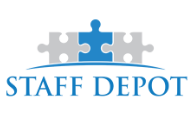The Role of Networking in Job Searching
In today’s fast-paced and highly competitive job market, searching for employment can be a daunting task. With the advent of online job portals and recruitment platforms, it’s easy to believe that finding a job is solely a matter of submitting applications and waiting for responses. However, the reality is that many job opportunities are hidden beneath the surface, and it takes more than a well-crafted resume to discover them. This is where networking steps in to play a pivotal role.
The Power of Connections: How Networking Can Boost Your Job Search
- Establishing Relationships: The Foundation of Effective Networking
Building genuine relationships with professionals in your field is the cornerstone of successful networking in job searching. These connections serve as a valuable resource, providing insights, advice, and potential job leads. Here’s how you can establish meaningful connections:
- Attend industry events, conferences, and seminars: These gatherings offer excellent opportunities to meet like-minded professionals and industry experts. Strike up conversations, exchange business cards, and foster connections that can potentially lead to job opportunities.
- Utilize online platforms: Social media platforms such as LinkedIn provide a wealth of networking possibilities. Create a compelling profile, join industry-specific groups, engage in discussions, and reach out to individuals who share common interests or work in companies of interest.
- Leverage existing connections: Reach out to friends, family, former colleagues, and mentors to expand your network. Their connections may lead you to hidden job openings or introduce you to key decision-makers.
-
Uncovering Hidden Opportunities: The Advantages of Networking
Networking in job searching offers numerous advantages that can significantly enhance your chances of finding employment. Let’s explore how networking can open doors to hidden opportunities:
- Access to the hidden job market: Many job openings are never advertised publicly. Instead, they are filled through internal referrals and recommendations. By networking effectively, you gain access to this hidden job market and become aware of positions before they are even posted.
- Enhanced credibility and trust: Building connections and establishing relationships with professionals in your industry lends credibility to your profile. Referrals and recommendations from trusted contacts can vouch for your skills and qualifications, giving you an edge over other candidates.
- Insider information and industry insights: Networking provides you with valuable insights into industry trends, company culture, and hiring practices. This information can help you tailor your application and interview strategies, making you a more informed and desirable candidate.
Strategies for Effective Networking in Job Searching
-
Be Proactive: Take the Initiative
To make the most of networking in your job search, it’s essential to take a proactive approach. Here are some strategies to consider:
- Set clear goals: Define what you want to achieve through networking. Whether its gathering industry insights, finding job leads, or expanding your professional circle, having clear goals helps you stay focused and motivated.
- Craft an elevator pitch: Prepare a concise and compelling introduction that highlights your unique skills, experiences, and career goals. This elevator pitch should effectively communicate your value proposition to potential connections and leave a lasting impression.
- Attend networking events: Actively seek out industry-specific events, job fairs, and professional gatherings. These provide excellent opportunities to meet professionals in your field and expand your network. Remember to approach conversations with a genuine interest in learning about others and their experiences.
- Engage in informational interviews: Reach out to professionals who work in companies or roles that interest you. Request a brief informational interview to learn more about their career paths and gain valuable insights. This not only builds connections but also demonstrates your genuine interest in the industry.
- Follow up and maintain relationships: Networking is not a one-time event but an ongoing process. After connecting with someone, be sure to follow up with a personalized message or email. Stay in touch by sharing relevant articles, congratulating them on their achievements, or offering assistance when needed.
-
Overcoming Networking Challenges: Addressing Common Concerns
While networking can greatly benefit your job search, it’s not without its challenges. Here are some common concerns and tips to overcome them:
- Fear of rejection: Reaching out to new people can be intimidating, and the fear of rejection can hold you back. Remember that networking is a two-way street, and many professionals are open to connecting and helping others. Embrace rejection as a natural part of the process and keep pushing forward.
- Feeling like an imposter: It’s common to doubt your qualifications and feel like an imposter when networking with industry experts. Remember that everyone has started somewhere, and you bring unique skills and perspectives to the table. Have confidence in your abilities and focus on building genuine connections.
- Time constraints: Networking can be time-consuming, especially when juggling job applications and interviews. Prioritize networking activities by setting aside dedicated time each week. Even small efforts, such as sending a quick message or attending a virtual networking event, can make a significant impact over time.
Networking fatigue: It’s possible to experience burnout from networking if you’re constantly attending events or reaching out to new connections. Pace yourself and find a balance that works for you. Quality connections are often more valuable than a large quantity, so focus on building meaningful relationships rather than simply collecting contacts.
-
Embrace the Power of Networking and Unlock Your Potential
Networking in job searching is a powerful tool that can significantly enhance your career prospects. By building meaningful connections, you gain access to hidden opportunities, industry insights.




